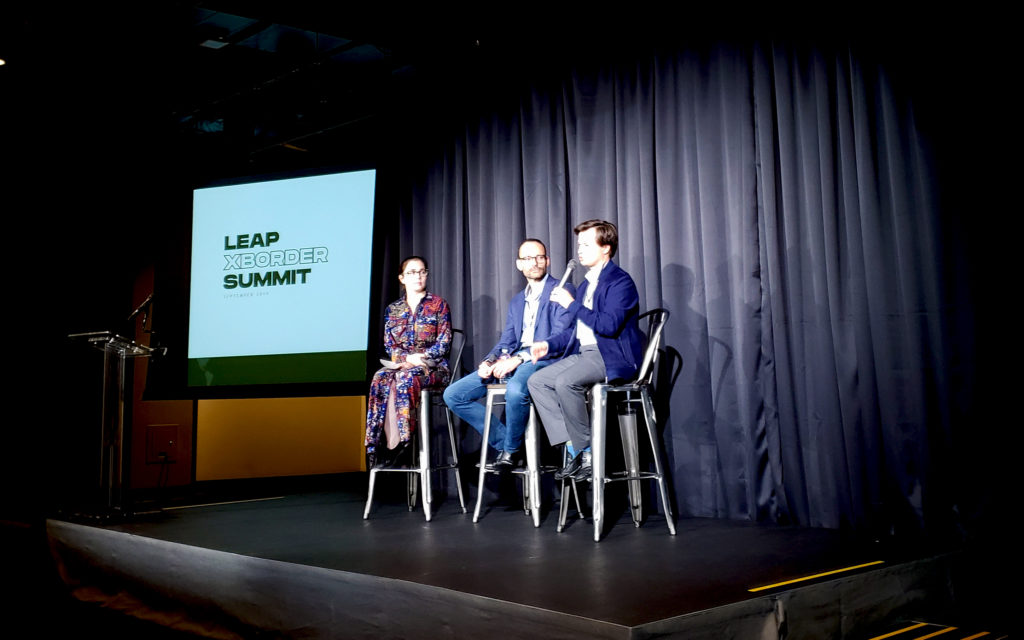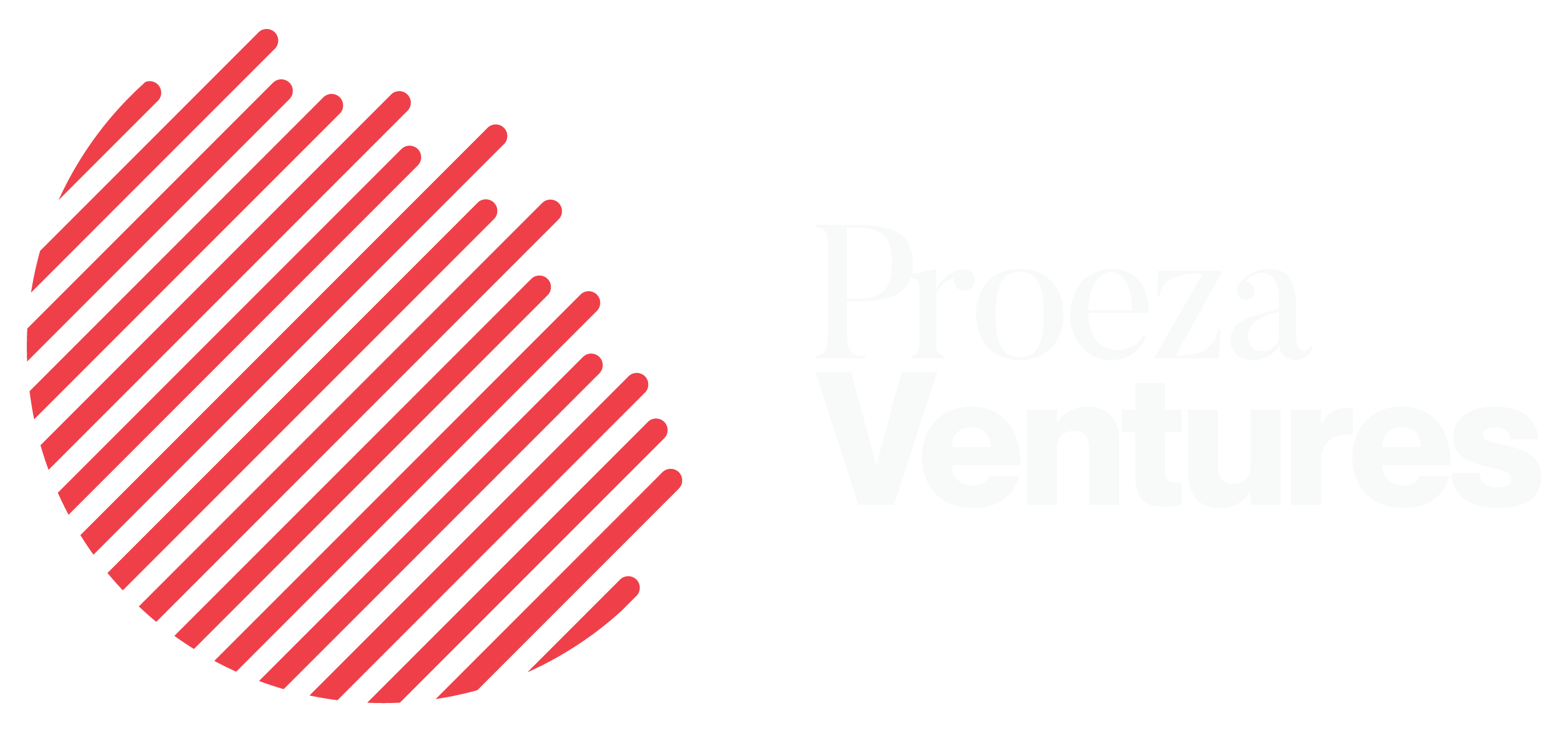Wizeline CTO, Vidal Gonzalez, recently spoke at the XBorders Summit in San Francisco hosted by Leap Global Partners venture group. Vidal sat down with Enrique Zambrano from Proeza Ventures and Metalsa, to chat about the collaboration between their two organizations.
One of the case studies we want to highlight is the collaboration between Wizeline and Metalsa or Proeza Ventures. I’ll let them talk a little bit about their companies what they’re doing, and how this collaboration came about.

Enrique Zambrano: Hello, I’m honored to be here. I’m currently at Proeza Ventures, we’re a mobility-focused fund based in Monterrey, Mexico, and Houston. We actually just recently launched, so looking into closing our first deals. We invest across the value chain of mobility, from industrial tech (which we see as a backbone of mobility) to mobility-as-a-service. Just as a context, our main OP is Proeza. It’s a holding group in Mexico. It’s a diversified holding company, and one of the main businesses is Metalsa.
Metalsa is an automotive tier-one supplier. They manufacture mostly structural components, and one of their main products is frames. The important thing is, it’s the main part that goes into pickups. So we manufacture frames for the Ford F150, Toyota Tacoma, and Dodge Ram, worldwide in the market.
Vidal Gonzalez: I’m very pleased to be here from Guadalajara, Mexico. I’m based out of Guadalajara and I’m the CTO at Wizeline. Wizeline is a company that started as a product company to help other companies build products with software. And after we saw that the Silicon Valley was not as interested in doing product privatization, that they had their own system, we discovered that far larger clients were very interested in becoming digital and building products. What we found was that the problem was not technology, the problem was people. So three years ago, we became a software and services company to develop products along with our customers worldwide. We are mainly based out of Guadalajara, where we have around 400 people, as well as Queretaro, Mexico, Mexico City, and also Ho Chi Minh, Vietnam.
Can you tell us a little bit about why you chose Mexico as your main headquarters and why you’re focusing on engineering talent in that region?
Vidal: I think I can explain why the decision of Bismarck, who is the founder of the company, was to establish in Guadalajara (because I was already in Guadalajara, I love it).
Bismarck’s previous company was Ooyala, and I believe he has always seen things that are now apparent to a lot of people. He saw an increased fight for talent in the Valley, and he also knew that there was talent distributed all over the world. And so he decided to jump-start an investigation of where he could start his second engineering office.
And I believe because he’s also Mexican-American and because Guadalajara has an interesting mix of talent, we all decided to invest in Mexico. From there, we worked hard to change the mindset of, let’s say, the average engineer that was used to working at big corporations to really come forward and work at startups like Ooyala.

Enrique, in terms of starting to collaborate with startups and not just investing in startups… How do you go about thinking about the problems you want to solve and what kind of partnerships you want to build and then how did you choose Wizeline?
Enrique: I think that the key thing is to define your goals, not only your immediate goals but where you want to go. The other component is being humble enough that you cannot do everything in-house. And that some of the things, at a big corporation, are hard because they’re used to doing it on their own. it’s also about working with the IT teams because it’s saying ‘Hey, you’re bringing someone from the outside, we actually can do this’ when you know that they don’t have expertise in that area. So it’s also about being really political, on that end.
On that particular collaboration with Wizeline, what we were doing at Metalsa… we had launched a venture builder called the MLab. So we were actually looking at launching our first startups. We needed to build a team in a very short span so we actually built two teams, so the start of two companies in about three weeks. We wanted to bring people from different perspectives, and we wanted people with data scientists and software engineers to be part of the team.
In this initial phase, it was a lot of brainstorming and validating the constant, we thought it was important to have that from the start, to have that talent. With Wizeline, I had a long relationship with Bismarck and also with Anibal Abarca. Anibal was in my previous startup in a company in Mexico. He was an advisor. So there was already a close relationship. Plus, they were very flexible on how to work with us and responsive, and that really closed the deal with us.
So we launched these two teams and we brought two people from Wizeline, one for each team. One startup was focusing on how to manufacture EVs in Mexico, kind of be an outsourcing manufacturing partner for all these new startups in the EV space. That eventually merged into becoming a macro mobility startup that is currently based here in the Bay Area.
The second one was more around how to build a more flexible manufacturing process, which evolved into creating kind of an online marketplace and connecting small manufacturers like small shops especially when they realized that in Mexico, especially in Monterrey, there are so many of these small shops that have a lot of talent, although they don’t have the systems or the processes in place to bring in more business.
And Vidal, Wizeline has had a very large international expansion, specifically in Latin America and in Mexico. How do you go about setting the proof of concepts and projects with different corporations? And what are the results that you’re seeing with Metalsa, and the progress of integration that you’ve seen from the collaboration?
Vidal: Of course. And I guess, it would seem very odd if you know the IT services industry, that most companies would not take a two-people collaboration. But we’ve always hired very good generalists in terms of talent, and good generalists are very good engineers to help you start a company when you’re very small. And if the task is not data, and you only have that data engineer that will only do data, you’re in for a problem, right?
So we always go in with a deeper understanding of the customer first before we become prescriptive about how to solve their issues. We truly believe that the type of company that will help other companies be better is through, of course, technology, but also an understanding of their culture and having the flexibility and the ability within our teams to be able to suggest new ways of working. Not only from the technical side but also in the way you architect your teams. We always keep that open mind and that level of extreme ownership in our people.
If you see a problem and you think there’s a solution that either yourself or somebody else can attack, you should say so. And in most companies, at least what we’ve seen is, it’s pretty comfortable for services companies to just come in and take orders. At Wizeline, we truly take it as our responsibility to make our customers successful by being good partners and vocal, positive partners.
Enrique, a lot of times with innovation, there’s a lot of auto-immune responses from the operating teams, and even the leadership is really adamant in adding new partners and looking at collaboration to support disruption, the internal challenge is resistance. How have you worked around this and worked with Wizeline to change this?
Enrique: There are two things we worked on. The first one, which took a long time but once we executed it, it’s simpler. Just working more independently.
So at Proeza Ventures, we have an independent mandate, we created a totally separate legal entity and we manage our budget on our own and made our decisions on our own, so we wouldn’t have to go through the hassle of a convincing everyone at corporation… once we had approved the project to move forward and be much more agile and move like a startup.
At the same time, you also have to build relationships inside the company and to position it as, for the ones that are resistant against innovation, it’s more than saying ‘Hey, we’re bringing someone else to do your job.’ It’s like ‘Hey, we’re bringing someone else to help you out and actually help you build your own skills and work with you.’ And at the end of the day, it’s like having a very clear goal for the organization. I think that helps other team members to say ‘Okay, this is where we want to go. And the more help I can get to actually achieve this [the better] because if we achieve this it will help me.’ It really, really helps.
Although, I have to say we have a lot of stories. We’ve had our challenges, especially with our own internal startups working inside the company, it has been very interesting.
Vidal, in terms of working with different corporations across different geographies, do you see any difference in how that evolved and how the culture is slowly changing in terms of adopting external talent and then incorporating that into the actual company?
Vidal: Yes, I believe that companies are realizing more and more that assembling an engineering team is hard, but creating the right culture for that engineering team to thrive is even harder. When they understand that that challenge is going to take a lot of calories and that they’re opening the possibility for somebody like Wizeline to come in and help them, that’s when the real change starts to happen. Now, when it comes to big corporations we always see leaders very high up extremely aligned with what we do, what value we can bring. They’re all for it. Now, I highly empathize with being aligned with them but also not having enough visibility within the organization to be able to make that change, a swift change.
So yes, we meet a lot of leaders who truly get what we do when we come in to work with their companies. We understand that we’re going to be met with some resistance and we are getting used to it, but also getting better at it.
The one thing that I have to admit has been difficult is we create a certain culture at Wizeline, and whenever our teams get confronted in a certain way that is not our culture, they get unbalanced. And we need to continue to help them understand that this is a cultural change.
What do you think is the key as a corporation, as a venture builder such as Proeza Ventures, in working with startups, not just building the startups that you’re building, and then incorporating that into the strategy of your organization?
And Vidal, what do you think is the key to be able to develop long-term relationships with your corporate customers?
Enrique: First, I just want to clarify that the venture builder is separate from Proeza Ventures. Yes, the MLab was at Metalsa and Proeza Ventures is now a new entity, part of the group, focused on investing in startups and more series A and B.
The key thing to collaborate and to be part of a successful ecosystem, you have to be there. The first thing is being open to things outside. Sometimes in an organization, you’re just used to how things are, you think that’s the way. So the first thing is saying, ‘Hey there’s other things out there.’ And as I said before, just having a common objective that’s super helpful. The other part, it’s more tricky, is being able to align yourself with what the future is bringing instead of fighting against it and saying ‘I’m actually going to lead it and be part of the change.’
Vidal: With big organizations, it’s always a challenge to make them feel like you were a tremendous partner, especially with some of the very large customers that we work with, they probably already work with other outside vendors. A new vendor coming in and trying to work with them is always a challenge. First, a challenge is being seen as the rest of the vendors that they work with, but also to make your presence be felt in a way that you get invited to the conversations that really matter within those organizations.
I’d say one of the key aspects of what’s kept us within those organizations is, again, an understanding that the challenge is cultural and to be extremely patient. I’ll tell you, we have a customer that we’ve been with for the last three years, and I have to admit that, just today, I’m realizing the real impact of what Wizeline has been able to do at the company. We deliver value on a daily, weekly, monthly basis but to really change the way a corporation works it takes a lot of time, it takes a lot of patience.
So to the people forming companies who work at large corporations, you need to understand that it takes time and for us, it takes time and patience as well.
Source: Wizeline, post by Nellie Luna



